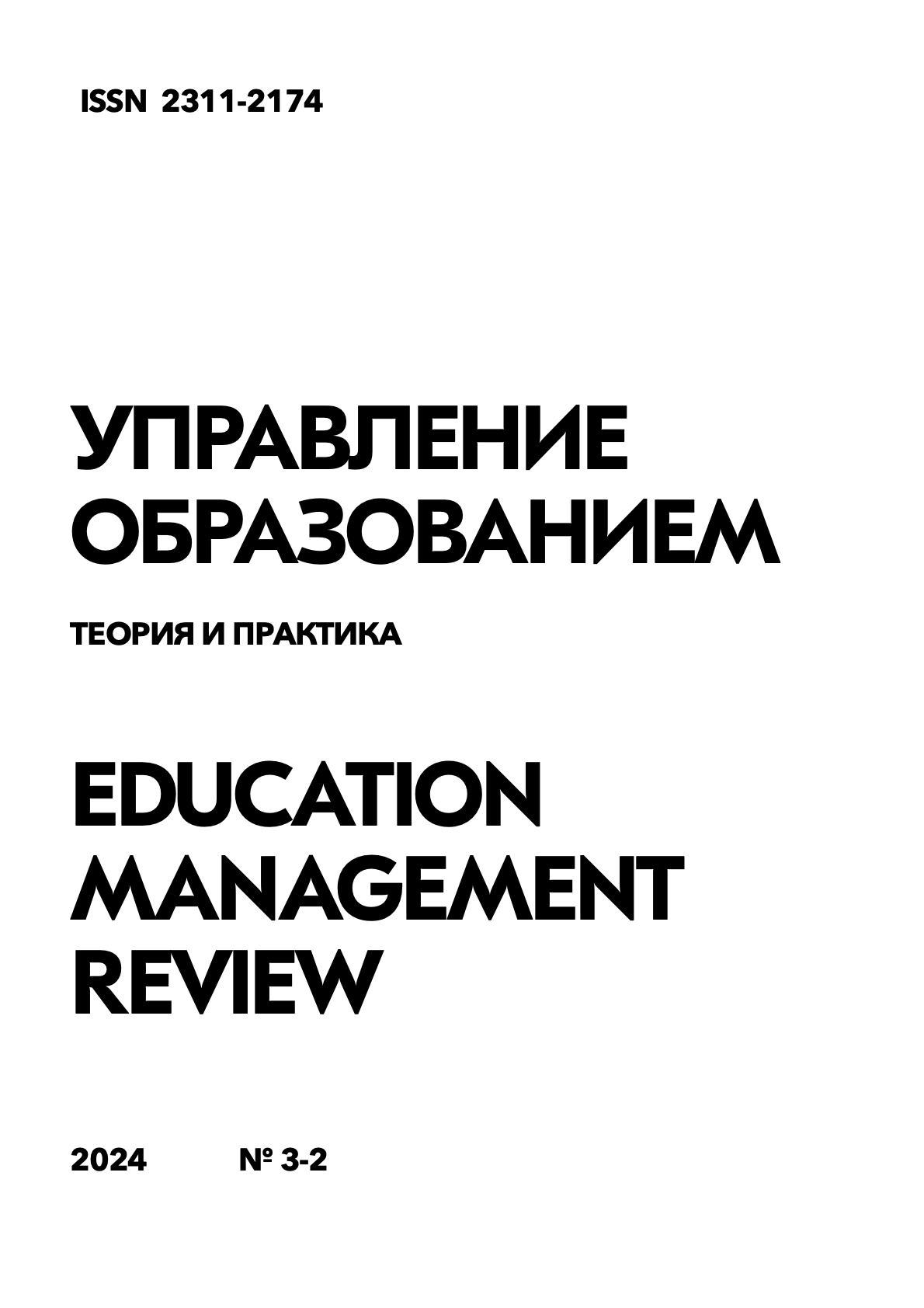Development and implementation of interdisciplinary research by students of pedagogical universities
DOI:
https://doi.org/10.25726/a2834-9632-6715-zKeywords:
interdisciplinary research, pedagogical education, research activities of students, integration of disciplines, innovative educational technologies, professional competencies of a teacherAbstract
The article examines the problems of the development and implementation of interdisciplinary research by students of pedagogical universities. The aim of the study is to identify the key factors contributing to the successful integration of an interdisciplinary approach into the educational process of future teachers. The work used methods of theoretical analysis of scientific literature, empirical research of practical experience in the implementation of interdisciplinary projects in 5 leading pedagogical universities of Russia (MPSU, A.I. Herzen State Pedagogical University, NGPU, V.P. KSPU Astafiev, USPU), as well as statistical processing of data obtained during the survey of 350 students and 50 teachers of these universities. The results of the study showed that the key factors for the successful implementation of interdisciplinary research are: 1) the availability of institutional support from the university management (87% of respondents noted); 2) the active involvement of teachers of various disciplines in joint project activities (92% of the surveyed teachers emphasized); 3) the use of innovative pedagogical technologies such as problem-based learning, case method, project-based learning (indicated by 78% of students); 4) the development of students' skills of critical thinking, creativity, communication and teamwork (noted by 83% of respondents). The model of interdisciplinary research organization developed in the course of the study at a pedagogical university includes three stages: preparatory (formation of interdisciplinary project teams, definition of project topics and tasks), main (implementation of research projects with the consulting support of teachers) and final (presentation of project results at scientific conferences, competitions, preparation of publications). The approbation of this model in experimental groups showed an increase in the level of motivation of students for research activities by 25%, the development of professional competencies by 30%, compared with control groups. The proposed recommendations on the introduction of an interdisciplinary approach can be used to improve the training of teaching staff capable of effectively solving complex tasks of modern education based on the integration of knowledge from various scientific fields.
References
Ворсина Е.В., Савельева М.Г. Моделирование междисциплинарного педагогического взаимодействия в вузе // Вестник Удмуртского университета. Серия: Философия. Психология. Педагогика. 2021. Т. 31. № 2. C. 209-216.
Восковская А.С., Карпова Т.А. Создание междисциплинарных курсов в процессе изучения иностранного языка в неязыковом вузе // Филологические науки. Вопросы теории и практики. 2021. Т. 14. № 2. С. 570-575
Гарькин И.Н., Медведева Л.М., Назарова О.М. Решение проблем организации научноисследовательской деятельности студентов в ВУЗе // Международный журнал прикладных и фундаментальных исследований. 2017. № 11-2. С. 281-285.
Гончарук Н.П., Сагдееева Г.С. Формирование научно-исследовательской компетенции будущих специалистов // Вестник Казанского технологического университета. 2013. Т. 16. № 3. C. 315- 320.
Зимняя И.А. Педагогическая психология. М.: Московский социально-педагогический институт, 2010.
Ильин Е.П. Мотивация и мотивы. СПб.: Питер, 2011.
Ипполитова Н.В., Стерхова Н.С. Анализ понятия «педагогические условия»: сущность, классификация // General and professional education. 2012. № 1. С. 8-14.
Кутепов М.М., Илященко Л.К., Морозов Д.Л. Технологии организации учебного процесса с использованием онлайн-курса // Балтийский гуманитарный журнал. 2019. Т. 8. № 1 (26). C. 230-232.
Леонтьев А.Н. Лекции по общей психологии. М.: Смысл, 2000.
Маслоу А. Мотивация и личность. СПб.: Питер, 2011.
Минаева А.М. Использование межпредметных связей в преподавании математики в техническом вузе // Международный студенческий научный вестник. 2015. № 5-3. С. 331-334.
Рожков М.И., Иванова И.В. Сопровождение саморазвития детей как целевая функция дополнительного образования // Ярославский педагогический вестник. 2017. № 4. C. 131-138.
Черная Л.В., Лазуткина Е.А., Актушина Г.А. Эффективность межпредметных связей в образовательном процессе медицинского вуза // Современные проблемы науки и образования. 2020. № 4. C. 64.
Шестак В.П., Шестак Н.В. Формирование научно-исследовательской компетентности и «академическое письмо» // Высшее образование в России. 2011. № 12. C. 115-119.
Ярошевский М.Г. О внешней и внутренней мотивации научного творчества. Проблемы научного творчества в современной психологии. М.: Дело, 2004.




